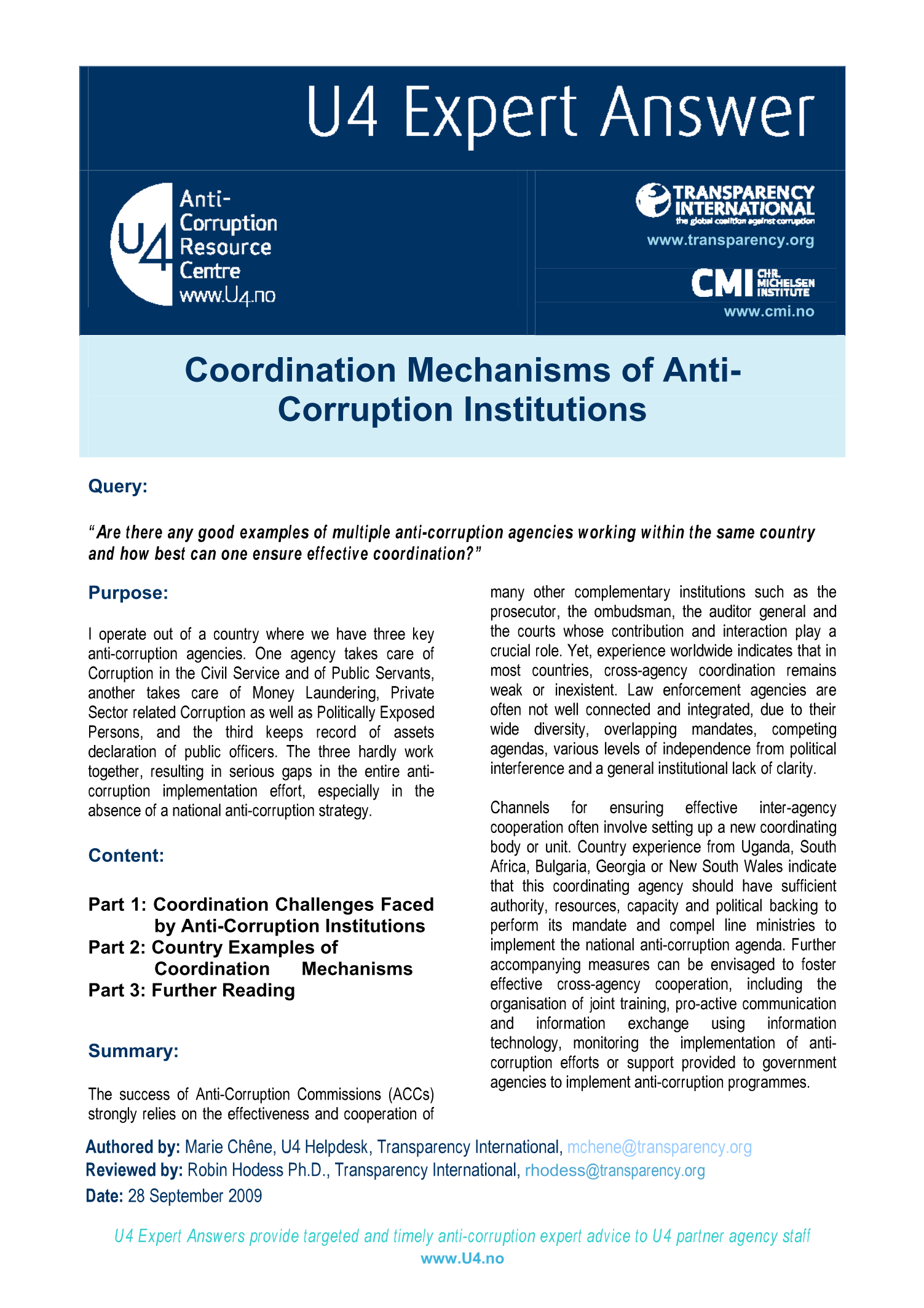U4 Helpdesk Answer
Coordination mechanisms of anti-corruption institutions
The success of Anti-Corruption Commissions (ACCs) strongly relies on the effectiveness and cooperation of many other complementary institutions such as the prosecutor, the ombudsman, the auditor general and the courts whose contribution and interaction play a crucial role. Yet, experience worldwide indicates that in most countries, cross-agency coordination remains weak or inexistent. Law enforcement agencies are often not well connected and integrated, due to their wide diversity, overlapping mandates, competing agendas, various levels of independence from political interference and a general institutional lack of clarity. Channels for ensuring effective inter-agency cooperation often involve setting up a new coordinating body or unit. Country experience from Uganda, South Africa, Bulgaria, Georgia or New South Wales indicate that this coordinating agency should have sufficient authority, resources, capacity and political backing to perform its mandate and compel line ministries

Cite this publication
Chêne, M.; (2009) Coordination mechanisms of anti-corruption institutions. Bergen: U4 Anti-Corruption Resource Centre, Chr. Michelsen Institute (U4 Helpdesk Answer Helpdesk)
Disclaimer
All views in this text are the author(s)’, and may differ from the U4 partner agencies’ policies.
This work is licenced under a Creative Commons Attribution-NonCommercial-NoDerivatives 4.0 International licence (CC BY-NC-ND 4.0)